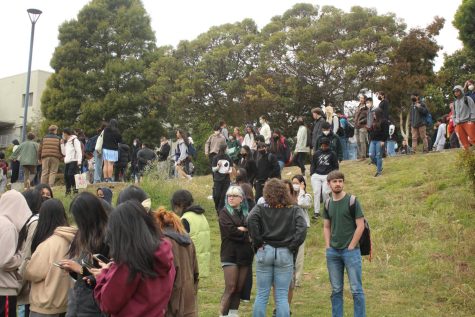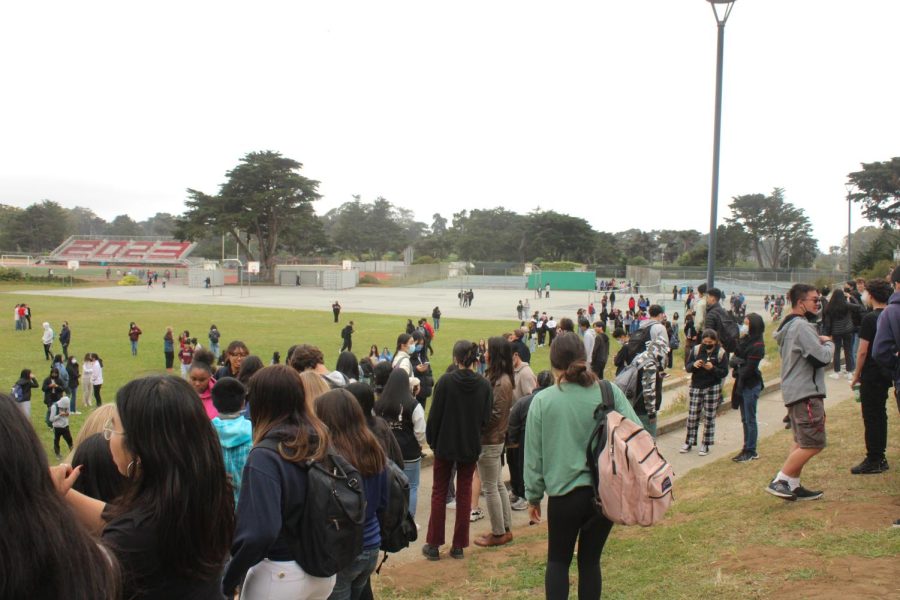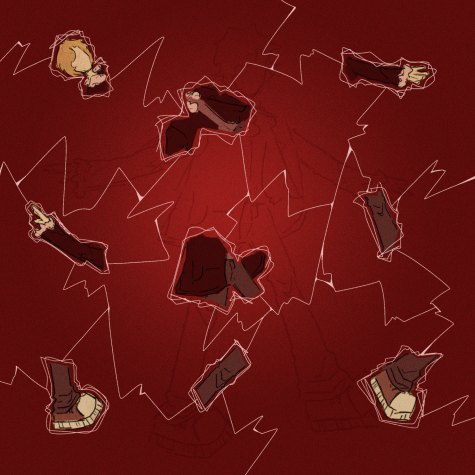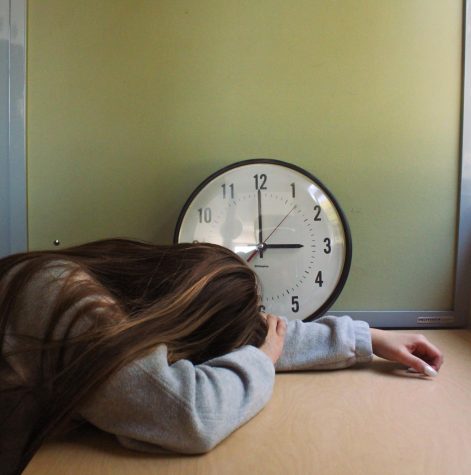Uptick in unplanned fire alarms brings about question for greater punishments
In the final few weeks of the spring semester, Lowell has had an increase in unplanned fire alarms. In response to this increase, principal Dr. Michael Jones gave a short announcement to all students addressing the current situation, possible consequences, and future solutions. Despite providing valuable information, the message was brief, leaving students wanting more information to clarify the uncertain situation.
This alarm uptick started at the beginning of the 2022-23 school year. Dr. Jones addressed that a potential cause for this increase in alarm frequency was due to students smoking in gender-neutral restrooms. “Out of all the alarms you’ve heard this semester, all have been because of vaping, except for two,” Jones said. Multiple bathrooms across campus are being closed to lower the number of triggered alarms due to vaping or smoking. According to Jones, this problem is tough to solve due to the lack of cameras in bathrooms, which inhibits the admin’s ability to figure out who is setting them off, whether accidental or not.
It’s probably not as punitive as it could be. If it were more punitive, we would have less alarms going off at schools around San Francisco.
— Dr. Jones
Lowell administration does have methods of catching these rule breakers, however. Jones explained that through security footage, staff could check who comes in and out of bathrooms at different times to figure out who sets off alarms inside. Using this method, they have been able to find some students and give punishments. However, according to Jones, specific consequences can vary greatly, with most penalties being mild. Lowell’s administration is limited in what they can instate as punishment due to restrictions set by the school board, and Jones acknowledged that there should be a way to institute more severe measures, as he believes the ones currently in place are not working.

Consequences of setting off the fire alarms differ based on multiple factors, such as repeat offenses and the severity of the infraction. The code of conduct has strict rules punishing students incrementally, which Lowell teachers and admin are not in control of. This means that with each infraction of the rules, the student’s punishment will get more extreme. Students who have not broken any rules at Lowell may get away with setting off the alarm without much consequence at Lowell. Many, such as Jones, feel this method of punishment is not fit, and a greater consequence would lead to fewer alarms. “It’s probably not as punitive as it could be,” Jones said. “If it were more punitive, we would have less alarms going off at schools around San Francisco.”
Lowell plans to involve the San Francisco Fire Department, who doesn’t have to follow the SFUSD code of conduct, to deter future offenders. This may introduce harsher punishments, such as fines up to $1000, to prevent further fire alarms from going off. The administration plans to ask students to come forward if they have any information on who is vaping or smoking in bathrooms and setting off alarms. “We’re looking at offering rewards next year for people giving up names,” Jones said. He felt this kind of system is necessary, as other prevention measures have been ineffective.

Isadore Diamond is a senior and a reporter on The Lowell. He is on the Cross Country and Track teams, and enjoys playing most sports, unless they are very competitive. In his free time he likes to play video games and practice piano.

Kylie is currently a senior at Lowell. When they aren't in the Journ Room, you can find them enjoying a nice medium cup of an espresso chai latte with light ice and short pull, or watching terrible movies.












